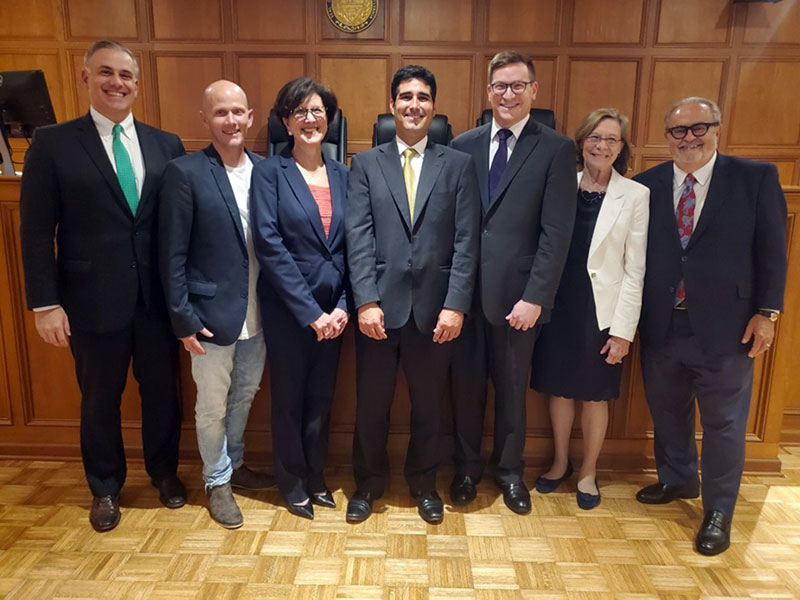Law School CLE Addresses Religious Freedom and Land Use Laws
The School of Law recently partnered with the University of Pittsburgh law school, the United States Attorney’s Office for the Western District of Pennsylvania and the Department of Justice’s (DOJ) Civil Rights Division to host a Continuing Legal Education program about religious freedom and land use laws.

Building Faith: Protecting Religious Freedom Through Land Use Laws was held June 17 on campus. Panelists and guests discussed how the Religious Land Use and Institutionalized Persons Act (RLUIPA) affects local land use and zoning policies by carving out vital protections for faith communities.
Associate Law Professor Joseph Sabino Mistick moderated the conversation with panelists including:
- Ryan Lee, trial attorney, DOJ Civil Rights Division
- Ira Karoll, attorney, United States Attorney’s Office, and adjunct law professor, University of Pittsburgh
- Harry Hoff, co-founder and lead pastor, Hope Rising Church, Clarion, Pa.
- Deborah Lawlor, discipline leader for planning services, Maser Consulting.
United States Attorney Scott W. Brady provided the program introduction, during which he explained the RLUIPA is designed to protect religious institutions from unduly burdensome or discriminatory land use regulations.
Hoff discussed Hope Rising Church, which was originally based in a warehouse in Penn Hills. There, it served the community by distributing clothing, providing counseling and a food bank, and hosting worship services. After a few months, the church was ordered by its municipality to cease worship services at the warehouse because it violated the community zoning act.
“I was told that I couldn’t talk about God in my building and that crushed me,” Hoff said. “RLUIPA was a blessing.”
The church filed a federal lawsuit in the United States District Court for the Western District of Pennsylvania, challenging the order under RLUIPA. The magistrate Judge recommended an injunction in favor of Hope Rising Church, the District Court entered it and the case was quickly resolved.
Lawlor spoke about the importance of understanding RLUIPA from a planner’s perspective and elaborated on the protection that the act offers.
Lee offered different examples of cases across America that were success due to RLUIPA, including United States of America v. City of St. Anthony Village, Minnesota.
Karoll encouraged lawyers attending the event to enforce RLUIPA and also recommended sensitivity training to avoid and to address related claims. “Be fair, and use common sense,” he said.
For more information about RLUIPA and to report a violation, visit www.justicegov/crt/placetoworship and www.justice.gov/crt/rluipa.
